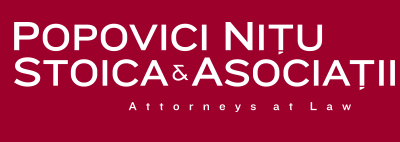- About Us
-
Expertise
- Banking & Finance
- Capital Markets
- Competition & Antitrust
- Corporate & Commercial
- Data Privacy
- Employment & Pensions
- Energy & Natural Resources
- Gambling & Betting
- Healthcare & Pharmaceuticals
- Insurance
- Intellectual Property
- International Arbitration
- Litigation
- Mergers & Acquisitions
- Project Finance/PPP, Concessions & Infrastructure
- Public Procurement
- Real Estate
- Restructuring & Insolvency
- Sports Law
- Tax
- Telecommunications, Media & Technology
- Transports & Logistics
- White Collar Compliance & Defense
- Our team
- Careers
- Publications
- News and Press
- Contact
Legal Update
Whistleblowing Q&A for Companies | All Eyes on Protection, Support and Remedies – No Retaliation for the Whistleblowers
WHITE COLLAR COMPLIANCE & DEFENSE
First and foremost – a quick update on the whistleblowing draft law, as it gets closer and closer to come into force – this week, the draft law has been adopted by the First Chamber of the Parliament, being currently sent to the Decision-making Chamber. To also progress in getting companies ready, we are further outlining the 'don'ts'with respect to companies' consequences for whistleblowers.
 EU Whistleblowing Directive: All Eyes on Protection, Support and Remedies – No Retaliation for the Whistleblowers
EU Whistleblowing Directive: All Eyes on Protection, Support and Remedies – No Retaliation for the Whistleblowers
As a general rule, the whistleblowers benefit from protection measures as they cannot be considered to be infringing any restriction on disclosure of information. This means that whistleblowers will not be held liable for disclosing information except when acquiring or accessing that information is a criminal offense in itself according to the criminal regulations.
In line with the EU Directive, the draft law states that any form of retaliation, threats of retaliation or attempts to retaliate against whistleblowers shall be prohibited, in particular those concerning, but not limited to any suspension of the employment contracts, dismissal, amendments to the employment contracts, downgrade, salary reduction, change of working hours, reputation consequences, discrimination, early termination or cancellation of a contract for goods or services etc.
Companies should pay great attention to what is considered a retaliation measure, because the regulations provide a set of strong support and remedial measures meant to protect whistleblowers who consider having suffered any retaliation:
- The option of challenging the measures taken as retaliation by filing a request with the competent court
The whistleblower will benefit from an important advantage – reversal of the burden of proof, so that it is up to the company taking action against a whistleblower to prove that the measures taken are not retaliation measures against the act of whistleblowing.
If the court finds that the measure was imposed as retaliation by the company following the reporting or the public disclosure, it may, as the case may be, order (i) the abolition of the measure, (ii) to restore the parties to their previous condition, (iii) the compensation of the damage, (iv) the termination of the measure and its prohibition for the future, as well as any other measures in favor of the cessation of any other form of retaliation.
The court will also order, in all cases, that the company shall publish in a local or national newspaper, at its expense, an extract from the decision by which it was found that one of the measures provided above was taken unlawfully.
Moreover, if the court finds out that the company has already taken retaliation measures against the whistleblower twice or more considering the same reporting or public disclosure, in addition to the measures presented above, the court may also order the payment of a civil fine of RON 30,000.
- Assistance offered by the National Integrity Agency for any procedure and remedy provided by law
Another support measures offered to whistleblowers consists of access to information and advice. The National Integrity Agency provides support, advice and information on applicable protection measures, rights, procedures and remedies.
It is no news that the EU Directive and the draft law aim at protecting the whistleblowers, while setting up obligations for the companies. As such, to secure that companies do not take advantage of their position of power towards the whistleblower, it is expressly stated that contracts or any other form of agreement which waive or limit the rights of whistleblowers and/or the measures provided by law will are null.
This document is intended for informational purposes only, does not represent legal advice and does not focus on particular cases.
For further information or analysis on specific matters, please contact Alexandru Ambrozie or Ana Stoenescu.










